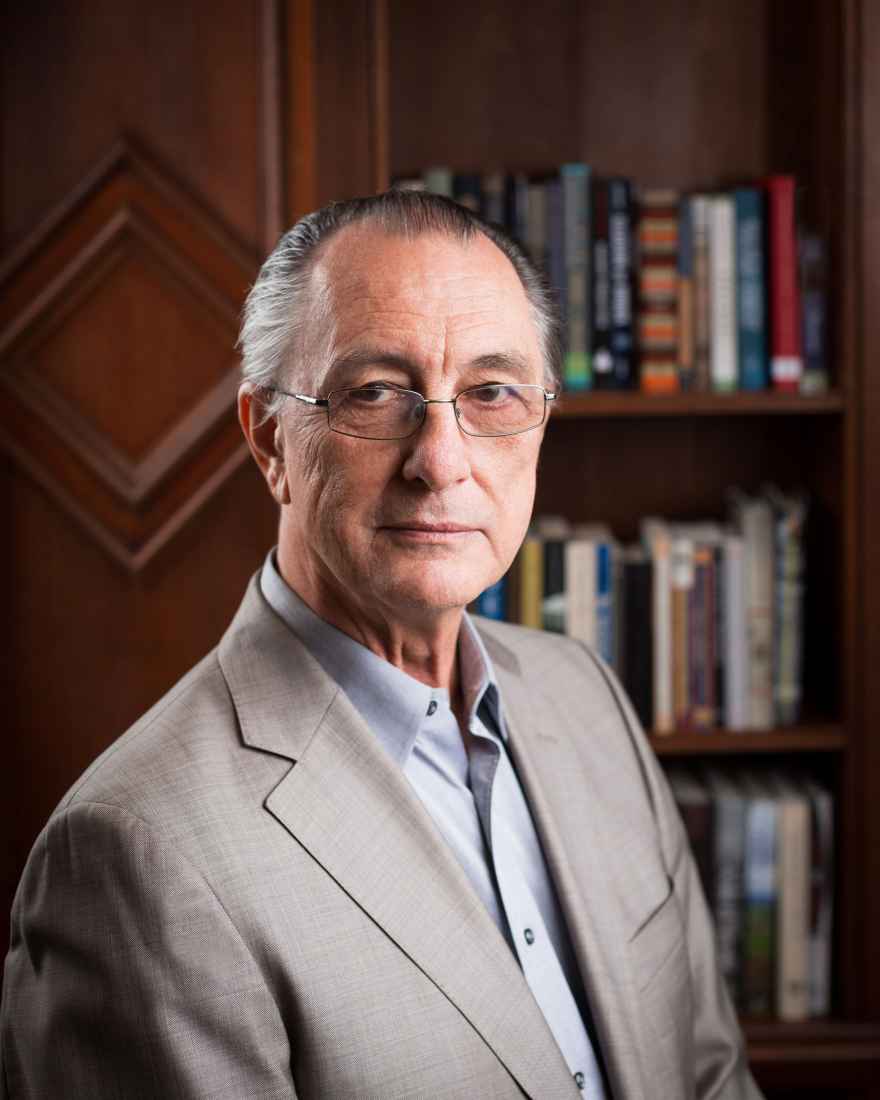David Wellbery to Receive the Golden Goethe Medal

Through his interdisciplinary approach to analyzing the work of Johann Wolfgang von Goethe, David E. Wellbery has transformed scholarly understanding of a pivotal cultural period in Europe surrounding the dawn of the 19th century. In recognition of his groundbreaking research, Wellbery will receive the Golden Goethe Medal from the Goethe Society on June 13, 2019, at the National Theater in Weimar, Germany.
Since 1910, the Goethe Society has given this award as its highest honor for individuals who have devoted their careers to advancing knowledge and research about Goethe. Past recipients of the Golden Goethe Medal include lyric baritone Dietrich Fischer-Dieskrau, writer and humanist Lew Kopelew, and Princeton scholar Walter Hinderer.
“During the last decades David Wellbery’s scholarship has transformed our understanding of Goethe’s work in fundamental ways,” said Daniel Diermeier, Provost at the University of Chicago. “The Golden Goethe Medal is a wonderful recognition of his seminal contribution.”
Wellbery, the LeRoy T. and Margaret Deffenbaugh Carlson University Professor in Germanic Studies and the John U. Neff Committee on Social Thought, and Department Chair of Germanic Studies, compares the importance of Goethe in the history of German culture to that of Shakespeare in England and Dante in Italy. The period spanning the late 18th century to the early 19th century is called the Age of Goethe due to his monumental contributions to literature, science, aesthetics, government, architecture, art collection, and education.
When he arrived at the University of Chicago in 2001 after appointments at Johns Hopkins and Stanford, Wellbery discovered a unique culture of cooperation across fields. “It’s part of the DNA at UChicago, and the interdisciplinary collaboration has contributed immensely to the advancement of my scholarship,” he said.
While Wellbery has worked closely with many colleagues, he singles out his collaborations with the philosophers Robert B. Pippin and James Conant, and his exchanges with the “world-status” scholars in the John U. Nef Committee on Social Thought. “The cooperative network of scholars in the Humanities and Social Sciences at UChicago has enabled us to achieve national and international leadership in Germanic Studies broadly conceived,” Wellbery said.
“By wide international consensus, David Wellbery is the foremost interpreter of Goethe’s work writing today, and he is one of the most influential scholars of that entire period, which is rivaled only by Athens in the classical age,” said Pippin, the Evelyn Stefansson Nef Distinguished Service Professor in Social Thought and Philosophy. “His importance for anyone working on the literature or philosophy of the time is uncontested, and his arrival at UChicago was for all of us working in that area an extraordinarily fertile event, spawning all sorts of conferences, workshops, classes, joint research projects, and lectures.”
Pippin added, “David’s work has always been characterized by great theoretical and philosophical sophistication, and a brilliant talent for both close reading and for contextualization. I have co-taught with David more than a dozen times, and these are all among the most memorable and helpful exchanges I have had in almost 30 year at the University. To say he is an invaluable asset would be to understate the case radically.”
While Wellbery has led multiple workshops and seminars on campus and at other U.S. universities, his knowledge and talent are also held in high regard internationally. For instance, he recently taught a masterclass on Goethe’s Poetics of Form and the Problem of Form in Contemporary Literary Studies at the Eötovös Lorànd University in Budapest, Hungary. In 2012, Wellbery held the Leibniz Professorship in Philosophy at the University of Leipzig, and he has been honored by memberships in the Bavarian Academy of Sciences, the German Academy of Sciences, and the German Academy for Language and Literature. In 2010, Wellbery received an Honorary Doctorate from the University of Konstanz.
Wellbery has also made his mark in through several essential publications. Fluent in English and German, Wellbery has written books on Goethe in both languages. His most significant scholarship on Goethe includes the books The Specular Moment: Goethe’s Early Lyric and the Beginnings of Romanticism (Stanford University Press, 1996) and Goethe’s Faust I: Reflections on the tragic form (in German; Carl Fredrich von Siemens Stiftung, 2016), as well as the essay collection Seiltänzer des Paradoxalen: Aufsätze zur Ästhetischen Wissenschaft (Hanser, 2006). He is also the editor-in-chief of the critical anthology A New History of German Literature (Harvard University Press, 2005), which has also appeared in German translation.
“David’s contributions to our understanding of Goethe’s work and of German literature more broadly are simply unparalleled,” said Anne Walters Robertson, Dean of the Division of the Humanities. “His achievement in winning the Golden Goethe Medal ranks among the monumental scholarly accomplishments of our time.”
In formulating his world-renowned scholarship, Wellbery found inspiration from several colleagues. During his time at Stanford, noted Dante scholar John Freccero and René Girard, whose theory of mimetic rivalry and scholarship have been broadly influential, were particularly formative for Wellbery’s conception of literary scholarship. Later at Johns Hopkins the example of art historian Michael Fried opened Wellbery’s eyes to the intellectual riches of the visual arts.
“I aspired to do for Goethe what John Freccero had done for Dante,” Wellbery recalled, “and Michael Fried set the standard for me of interpretative depth, consistency, and clarity.”
As a scholar of Goethe and the great epoch of European culture that he embodied, Wellbery has enlarged the understanding of Goethe’s work and of German literature and culture more generally. “Studying Goethe has become a way of life for me,” he said, “and has led me into the vast network of literary and artistic traditions that constitute our cultural memory. Goethe’s work is central to the self-understanding of modernity, and my task in scholarship and teaching is to ensure that this immense intellectual resource remains alive in our intellectual lives.”